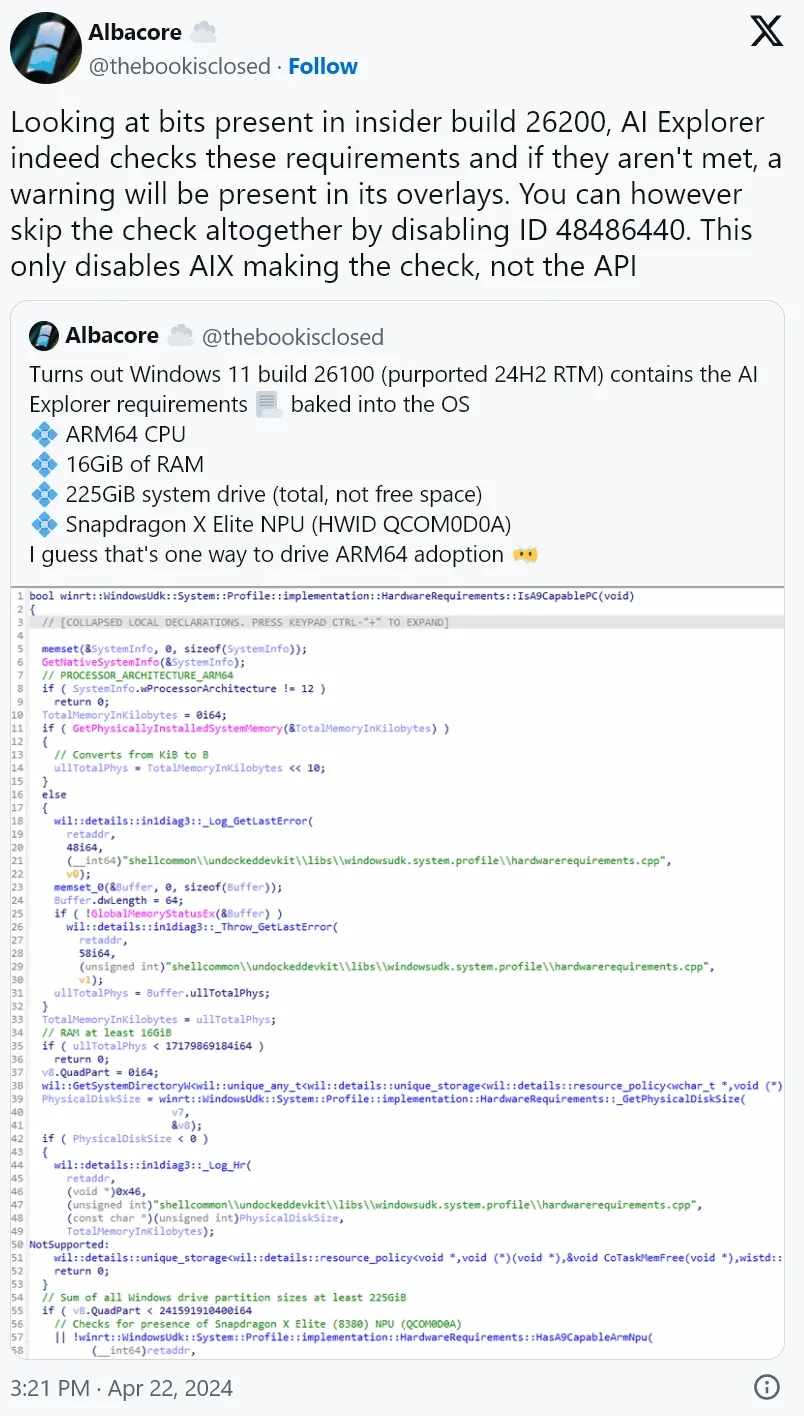In the latest developments surrounding Microsoft’s Windows 11 operating system, the upcoming 24H2 update is expected to incorporate several AI-based features. However, recent results from code analyzes suggest that PCs that do not meet specific hardware requirements for these AI features will display a notification watermark. This watermark is designed to inform users that their system processor does not support necessary AI features built into the operating system, such as Advanced Copilot, AI File Explorer, and DirectX AI Super Resolution. The revelation came to light thanks to investigations by a coder known as Albacore, who discovered this feature in Windows 11 Insider Build 26200. The code specifies that processors must support the SSE4.2 instruction set and a minimum of 16 GB of memory to use AI features. Effectively. While the SSE4.2 requirement won’t affect many users because most Windows 11-compatible processors already support this instruction set, it highlights Microsoft’s focus on ensuring performance optimal for AI-centric applications.
Additionally, the inclusion of a DirectX AI Super Resolution feature in the upcoming release hints at enhanced graphics performance capabilities, leveraging AI to improve image and video quality within applications. The move is part of Microsoft’s broader strategy to integrate more sophisticated AI technologies into its consumer products.
Albacore’s analysis also revealed that the system would check for these AI capabilities when installing or upgrading to the new version. Interestingly, a method was found to bypass this check in Release to Manufacturing (RTM) by disabling a specific ID code, suggesting that even if Microsoft imposes these requirements, there may be still ways for users to get around them.
This technical requirement comes at a time when Microsoft is facing critical feedback from the tech community regarding other aspects of Windows 11, such as unsolicited ads in the Start menu and restrictions on user interface customizations. The performance of the Start menu itself has been another point of contention, highlighted by criticism from a former Microsoft developer.
As the release of Windows 11 24H2 approaches, it remains to be seen how these hardware checks will affect the overall user experience and system performance, especially for those using older or less capable hardware. Additionally, how the Windows user base responds to these new AI features and system requirements will likely influence Microsoft’s future development and update strategies, especially as the company continues to balance between innovation and user accessibility.
Source: tom equipment




